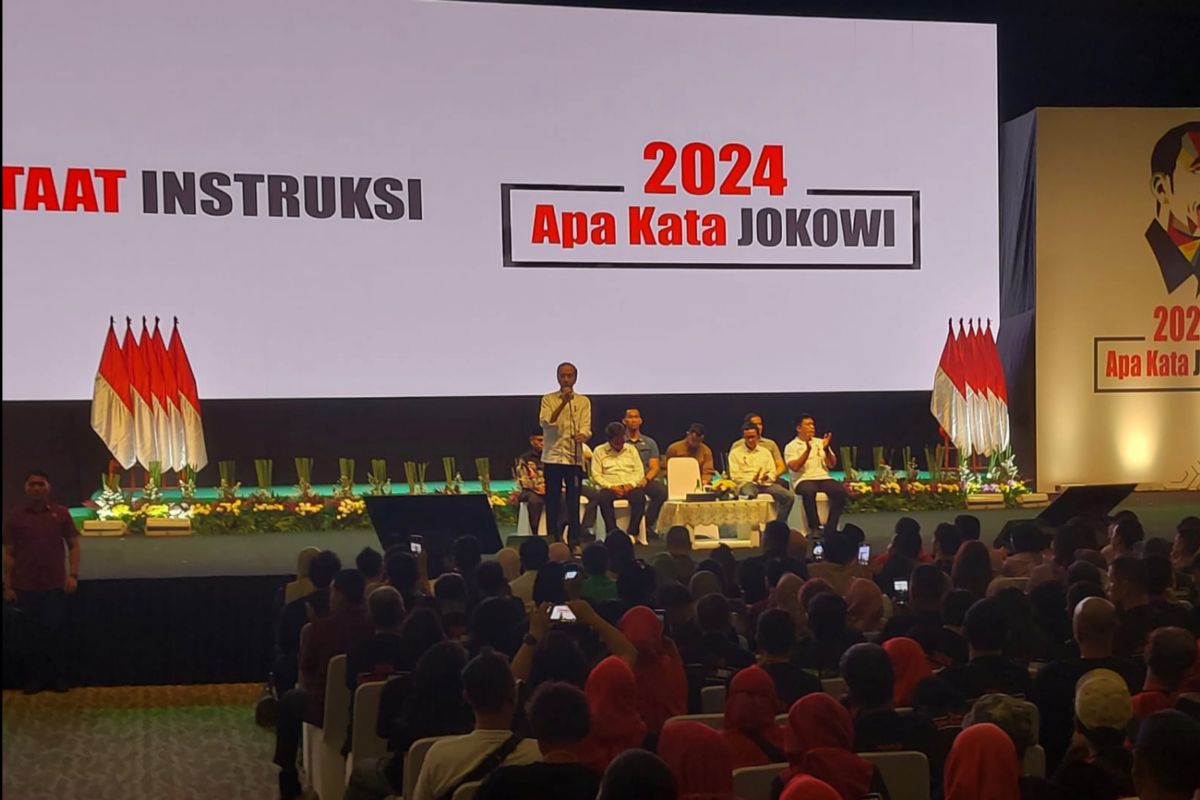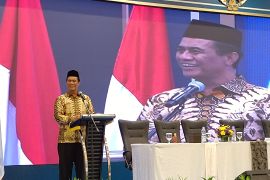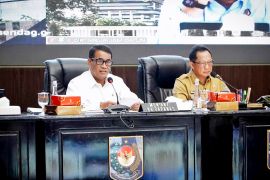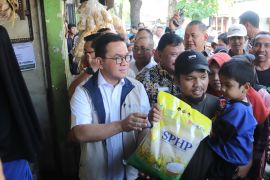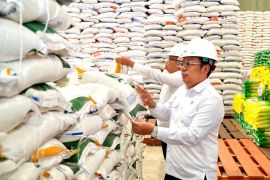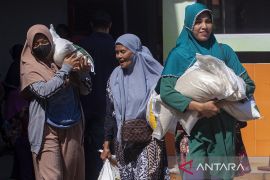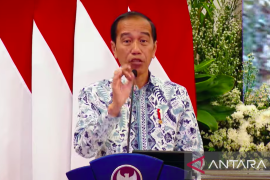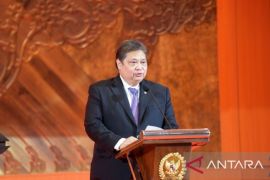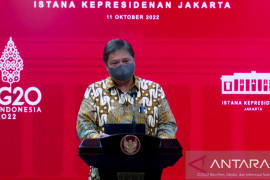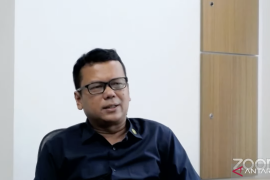While delivering his remarks at the National Consolidation of Alap-Alap Jokowi Volunteer Network in Bogor, West Java, on Saturday, Jokowi revealed that the increase in rice prices did not only occur in Indonesia but also in several countries due to the global food crisis.
"The average price (of rice) in Singapore is Rp21,600, (while) in Brunei, the price has reached an average of Rp37 thousand, Rp20 thousand in our close neighbor Timor-Leste, while ours is still Rp10,800-Rp13,000, but indeed, the price has increased globally," Jokowi stated.
In addition to the global food crisis, he said, the policy of banning rice exports by 22 rice-producing countries, such as India, is also a factor in the global food price inflation.
This crisis is exacerbated by the impact of climate change that causes extreme hot weather and long drought that had led to a decline in rice production, he pointed out.
In fact, the president admitted that Indonesia still needs to import 1.5 million to two million tons of rice from abroad, as the country's population continues to grow.
"Our current population is 278 million people, from the previous 270 million, so rice production must also increase. I must convey this problem, as it is because problems in one country will affect other countries too," Jokowi remarked.
In tackling the increasing rice prices, he highlighted that the government has distributed assistance of 10 kilograms of rice per month for each of the 21.3 million beneficiary families (KPM) in the last six months.
The distribution will continue until November to ease the burden on people in need.
"As long as our state budget is still capable, we will certainly decide (on distributing assistance)," Jokowi emphasized.
Related news: Bapanas points on rice's price ceiling for policy formulation
Related news: Minister Hasan distributes rice aid during market operation in Solo
Translator: Yashinta P, Kenzu
Editor: Azis Kurmala
Copyright © ANTARA 2023
